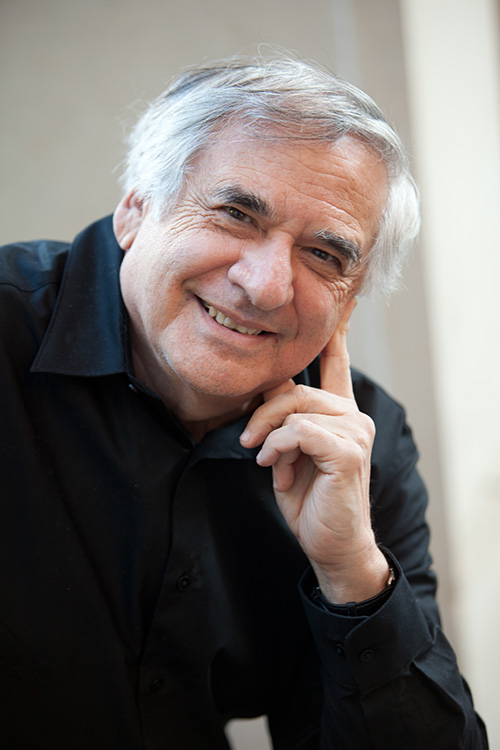

|
Simon Sargon (born April 6, 1938 in Bombay, India) is an American composer, pianist, and music educator of Israeli and Indian descent. He studied at Brandeis University and at the Juilliard School under Sergius Kagen. For many years, Sargon was Jennie Tourel's accompanist, performing with her in concerts and master classes across the country and abroad. Among his compositions are symphonic works, chamber music pieces, choral works, art songs, and operas. He has been commissioned to write works for numerous organizations including the Texas Music Teachers Association, the Meadows Foundation, Yale University, Susquehanna University, the Dallas Holocaust Society, and the Dallas Symphony Orchestra, the last of which has premiered three of his works. Sargon has received the Annual Award of Recognition from ASCAP (1991–present), was inducted as an Honorary Member of the American Conference of Cantors (2003), named a Finalist in the National Opera Association Composition Competition (1997); and awarded First Prize in the National Association of Teachers of Singing Musical Composition competition (1993). Sargon has been on the staff of the New York City Opera, Connecticut Opera, Dallas Opera, and was the assistant conductor of the Concert Opera Association of New York, which gave concert performances of unknown and neglected operatic works at Philharmonic Hall. He is currently the Professor of Composition at Southern Methodist University, and has been on the faculty of Sarah Lawrence College and the Juilliard School. He also served as Head of the Voice Department at the Rubin Academy of Music in Jerusalem for many years. In addition to teaching, Sargon was the Director of Music at Temple Emanu-El in Dallas, a position he held for more than twenty-five years. |
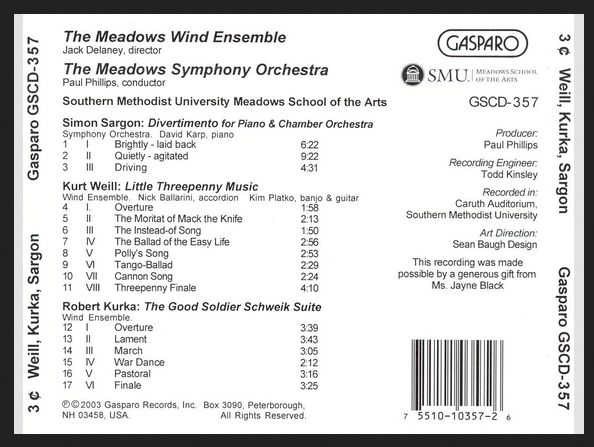 Living in Chicago all my life, it was especially
pleasant to be able to walk around the beautiful campus in shirt-sleeves.
We enjoyed the warm weather, and arrived at the appointed time for
the conversation . . . . .
Living in Chicago all my life, it was especially
pleasant to be able to walk around the beautiful campus in shirt-sleeves.
We enjoyed the warm weather, and arrived at the appointed time for
the conversation . . . . .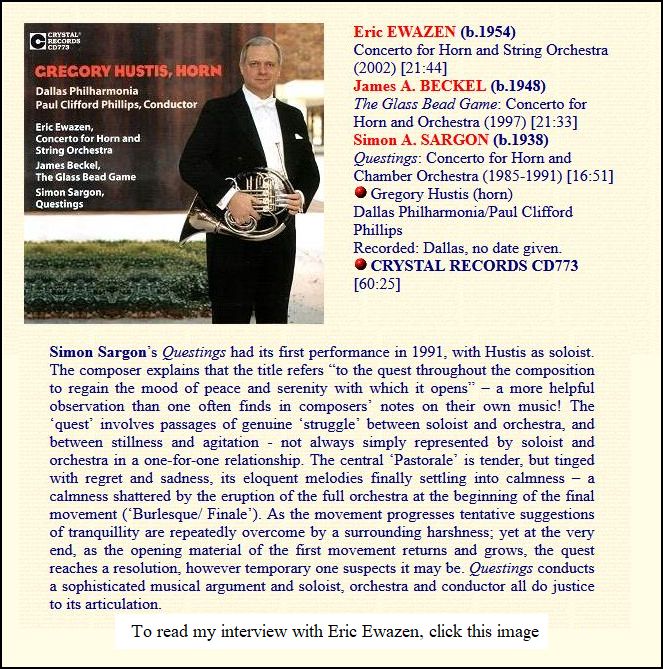 Sargon: Eventually, yes. That’s
a hard one because you have to leave yourself open for it, and sometimes
it gets worrisome if they’re not there. Then, you get sort of
panicked, and that’s the wrong way to approach it. To be less fearful,
and just have the faith that they will be there is the best way to do it
for me.
Sargon: Eventually, yes. That’s
a hard one because you have to leave yourself open for it, and sometimes
it gets worrisome if they’re not there. Then, you get sort of
panicked, and that’s the wrong way to approach it. To be less fearful,
and just have the faith that they will be there is the best way to do it
for me.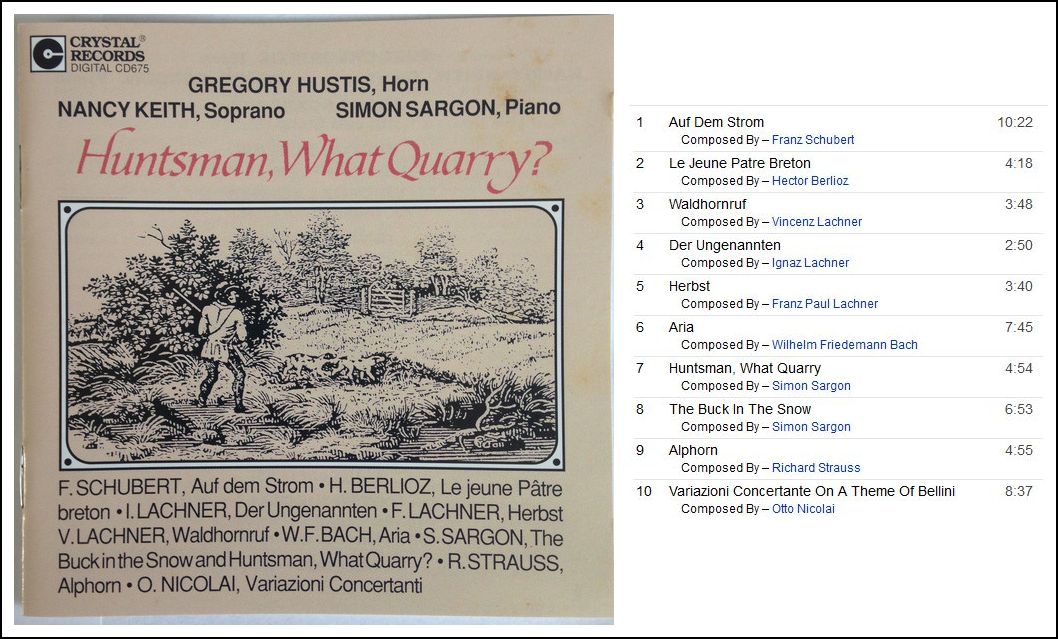
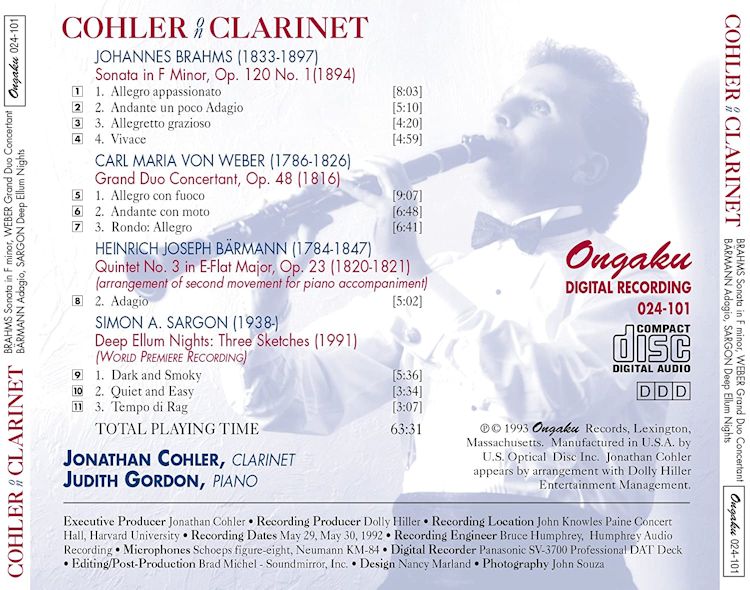 BD: Are you enough of a wordsmith to be able to get it
the way you want it?
BD: Are you enough of a wordsmith to be able to get it
the way you want it?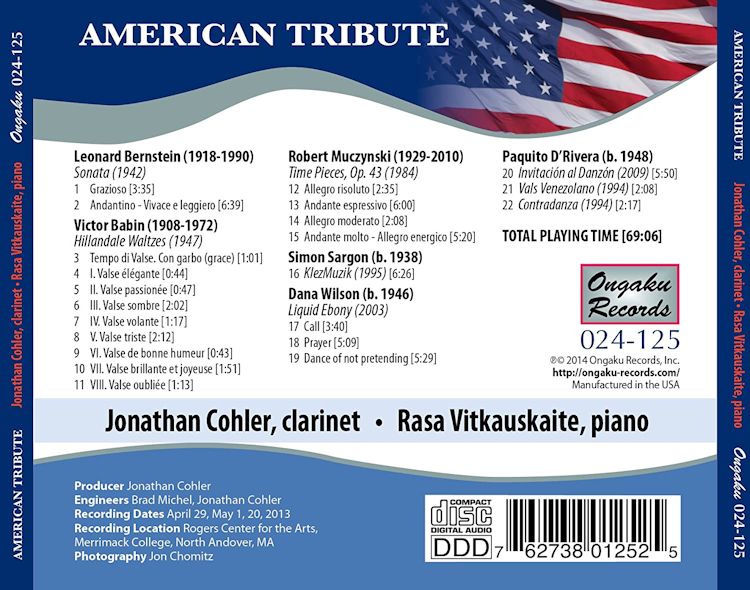 Sargon: When it feels right. It’s
a feeling. When I’m orchestrating a page of music, I’ll sit and orchestrate
one page for maybe forty-five minutes or an hour. Then it clicks,
and I know this is going to sound, so it’s okay. It’s not a totally
intellectual thing. There’s a certain intuitive element in it.
Sargon: When it feels right. It’s
a feeling. When I’m orchestrating a page of music, I’ll sit and orchestrate
one page for maybe forty-five minutes or an hour. Then it clicks,
and I know this is going to sound, so it’s okay. It’s not a totally
intellectual thing. There’s a certain intuitive element in it. The name ocarina, meaning “little goose,” was coined in
the late 19th century by Italian musician and baker Giuseppe Donati who
modified the instrument to play a diatonic scale and popularized it in
the west. However, the instruments’ origins probably go back 12,000 years.
Versions of this vessel flute, in differing shapes and sizes, were found
in many cultures including Mayan, Aztec, Inca, Indian, and Chinese.
The name ocarina, meaning “little goose,” was coined in
the late 19th century by Italian musician and baker Giuseppe Donati who
modified the instrument to play a diatonic scale and popularized it in
the west. However, the instruments’ origins probably go back 12,000 years.
Versions of this vessel flute, in differing shapes and sizes, were found
in many cultures including Mayan, Aztec, Inca, Indian, and Chinese. During World Wars I and II servicemen were given ocarinas to carry in their pockets to improve morale. In the 1953 Finnish children's book Tirlittan, the title character plays an ocarina. In the 1990s, there was a surge in the instrument’s popularity because it was featured prominently in the Nintendo 64 video games The Legend of Zelda: Ocarina of Time and The Legend of Zelda: Majora’s Mask. They have been credited for increasing the popularity of ocarinas and the sale of them. Ocarinas are great beginner instruments because they are pre-tuned, and can be played straight out the box. They have an enchanting, melodic sound, and are also fun for practiced musicians. The most common ocarinas have ten or twelve holes, and are often called a “Sweet Potato.” They have a range between an octave plus a fourth and an octave plus a minor sixth. In 1964, John Taylor, an English mathematician, developed a fingering
system that allowed an ocarina to play a full chromatic octave using
only four holes. This is now known as the English Fingering System, and
is used extensively for pendant ocarinas. It is also used in several
multi-chamber ocarinas, especially in ones that are designed to play
more than one note at a time. Beginning in the late 19th century, several makers also produced ocarinas with keys and slides. These mechanisms either expand the instrument's range, help fingers reach holes that are widely spaced, or make it easier to play notes that are not in the native key of the instrument. Due to its lack of keys, the ocarina shares many articulations with the tin whistle, such as cuts, strikes, rolls, and slides. However, tonguing is used more often on ocarina than on tin whistle, and vibrato is always achieved through adjusting breath pressure instead of with the fingers Composer György Ligeti (1923–2006) called for four ocarinas (to be performed by woodwind players doubling their own instruments) in his Violin Concerto, completed in 1993. In 1974, Krzysztof Penderecki (b. 1933) incorporated 12 ocarinas in his composition The Dream of Jacob. Later, he incorporated 50 in the final section of his Symphony No. 8, completed in 2008, where they are meant to be played by members of the choir. |
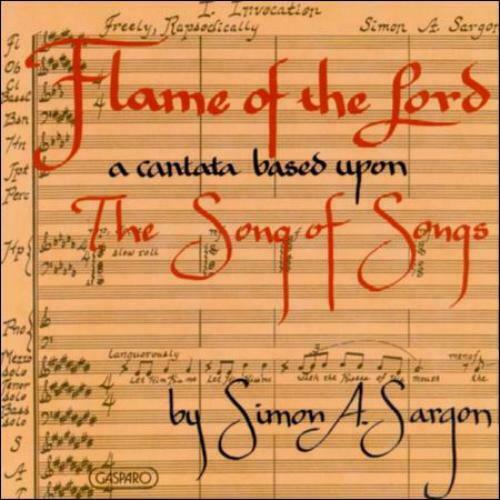 Sargon: [Laughs] Well... I
have to feel drawn to the instrument. I can’t force myself on that
one, although, it’s practical to do it.
Sargon: [Laughs] Well... I
have to feel drawn to the instrument. I can’t force myself on that
one, although, it’s practical to do it.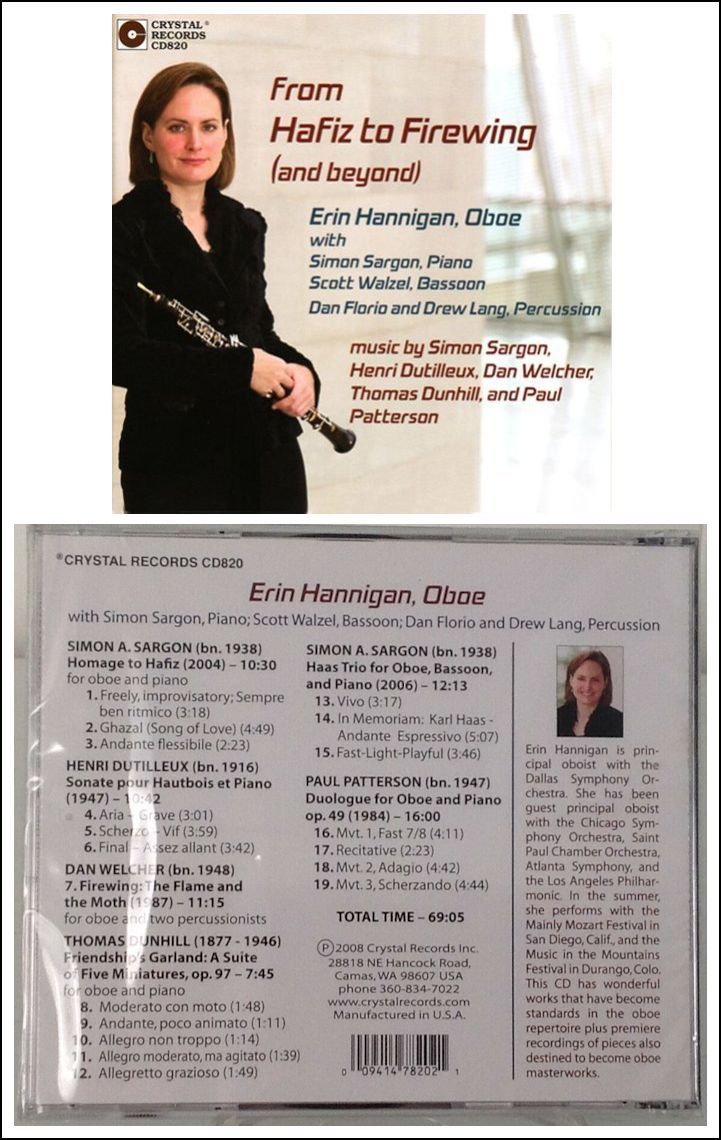 Sargon: We get awfully philosophical
in these discussions. Music is one of the greatest, richest, and
most satisfying gifts that we as humans have on Earth. Without music,
my life would be devoid of meaning. It would be bare and empty. I
can’t imagine it, and no other arts satisfy me that way. I go to
art museums because I love painting, and I go to theater and dance, but none
of the other arts completely take me over and immerse me the way music does.
As Schubert says in his lied An die Musik [To Music], ‘Du
holde Kunst, ich danke dir!’
[Oh blessed art, I thank you!]
Sargon: We get awfully philosophical
in these discussions. Music is one of the greatest, richest, and
most satisfying gifts that we as humans have on Earth. Without music,
my life would be devoid of meaning. It would be bare and empty. I
can’t imagine it, and no other arts satisfy me that way. I go to
art museums because I love painting, and I go to theater and dance, but none
of the other arts completely take me over and immerse me the way music does.
As Schubert says in his lied An die Musik [To Music], ‘Du
holde Kunst, ich danke dir!’
[Oh blessed art, I thank you!]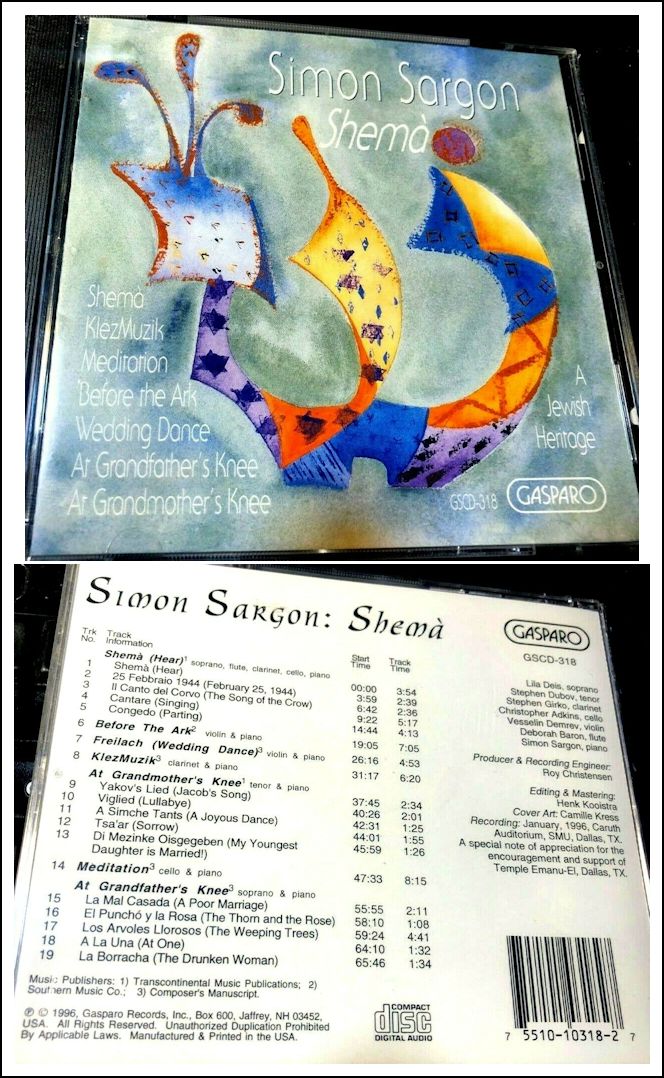 BD: It doesn’t put a straightjacket
on future performers to explore different ways because we have a composer-supervisor
who was a participant in the recordings?
BD: It doesn’t put a straightjacket
on future performers to explore different ways because we have a composer-supervisor
who was a participant in the recordings?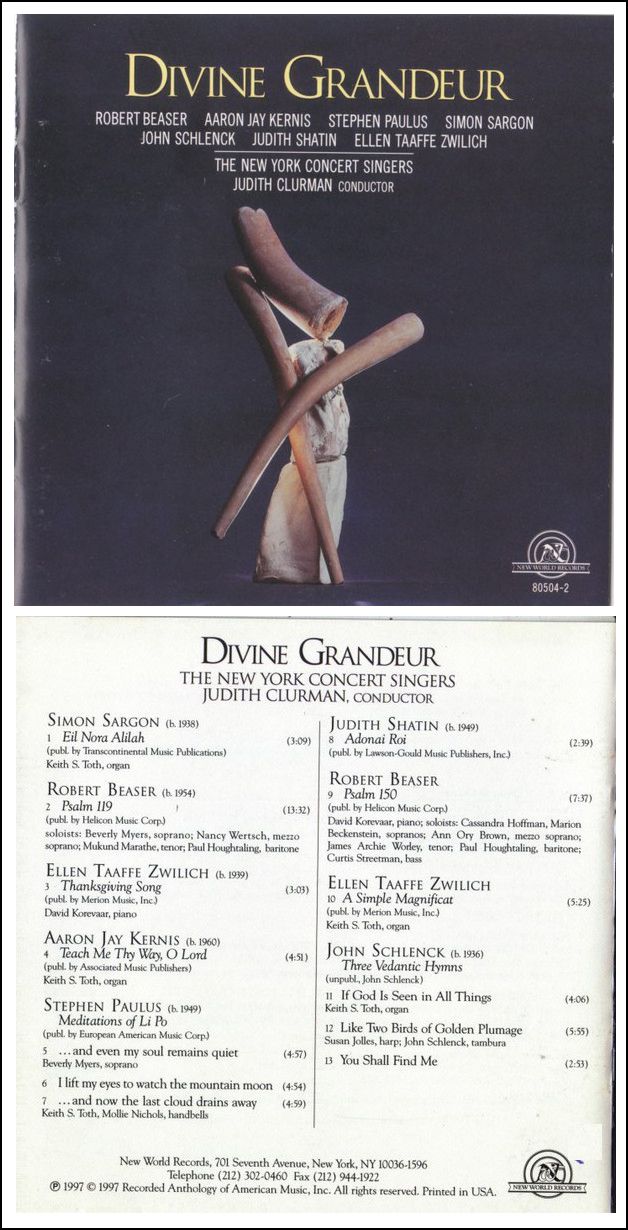 BD: For whom do you create?
BD: For whom do you create?© 2006 Bruce Duffie
This conversation was recorded in the office of Simon Sargon at SMU, in Dallas, Texas, on December 21, 2006. This transcription was made in 2020, and posted on this website at that time.
To see a full list (with links) of interviews which have been transcribed and posted on this website, click here. To read my thoughts on editing these interviews for print, as well as a few other interesting observations, click here.
Award - winning broadcaster Bruce Duffie was with WNIB, Classical 97 in Chicago from 1975 until its final moment as a classical station in February of 2001. His interviews have also appeared in various magazines and journals since 1980, and he now continues his broadcast series on WNUR-FM, as well as on Contemporary Classical Internet Radio.
You are invited to visit his website for more information about his work, including selected transcripts of other interviews, plus a full list of his guests. He would also like to call your attention to the photos and information about his grandfather, who was a pioneer in the automotive field more than a century ago. You may also send him E-Mail with comments, questions and suggestions.